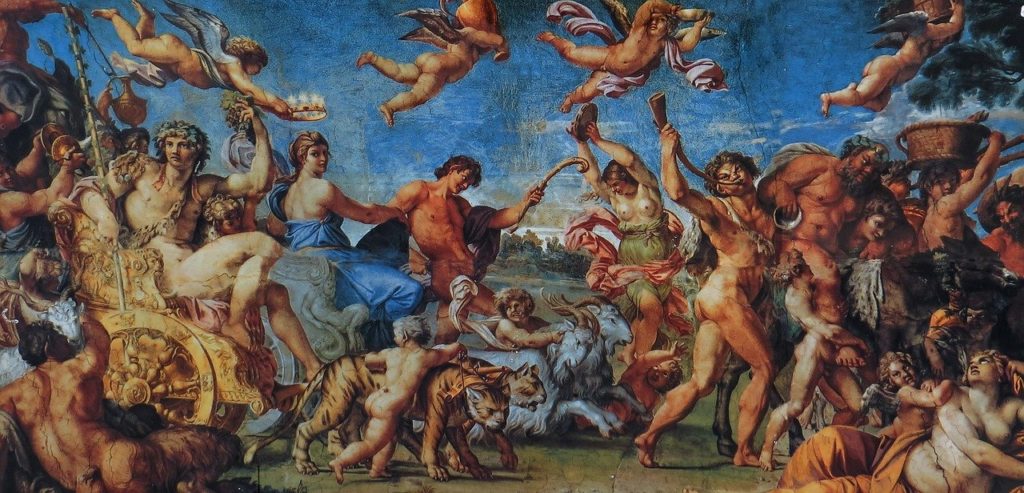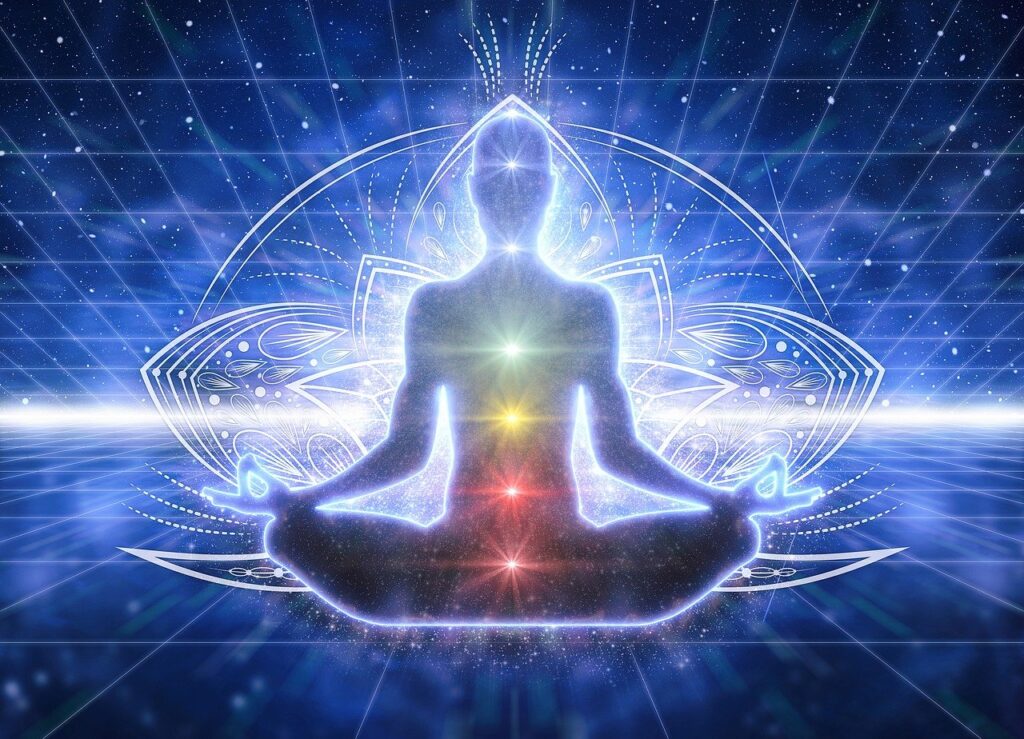
The term “Enlightenment” has multiple meanings available on the internet, which may lead to confusion and misinterpretation. Some people believe that Enlightenment refers to the acquisition of spiritual knowledge, and it is the ultimate goal of religious practices and yoga. The story of Buddha, who attained Enlightenment while meditating under the Bodhi tree, exemplifies this concept. In contrast, others contend that Enlightenment represents a period in history where the emphasis was placed on science and reason, and less on religion and tradition. Ultimately, the notion of Enlightenment revolves around a state of understanding or realization. However, what constitutes an enlightening realization depends on an individual’s personal values and beliefs. The experience of discovering something that has long eluded our understanding or satiated our curiosity can result in a mental or intellectual awakening. However, we would prefer to reserve the term “enlightened” for individuals who have reached a state of spiritual enlightenment. This state of being represents a profound realization of the interconnectedness of all things and the transcendence of the self. It involves a profound transformation in one’s perception of reality and can be considered the highest level of human consciousness. This article delves into different stages that an individual may encounter on their path towards enlightenment. It’s noteworthy that attaining a thorough comprehension of the ultimate truth doesn’t mandate experiencing every stage mentioned here. Nonetheless, to be considered enlightened, one must realize a significant majority of the stages of spiritual awakening explored.
#1 Birth, Disease, Old Age and Death – 4 Stages of Life
The inevitability of death is an undeniable fact of life. Throughout our time on this earth, we inevitably encounter sickness, aging, and ultimately, the end of our physical existence. These experiences, collectively known as birth, disease, old age, and death, constitute the four fundamental stages of human existence. While some may pass from this world in their youth, without experiencing the trials of old age, these stages are universal for all who are born. In the course of our lives, we experience both pleasure and pain, much like the changing seasons. Pain can arise from a variety of sources, including our own physical suffering, the misdeeds of others, or the capriciousness of nature. In our youth, our senses are often our strongest guides, driving us towards sense gratification. However, as we grow older, we gain wisdom and insight, which we can then impart to future generations.

#2 Laws of Karma
The Laws of Karma dictate that for every action we take, there is an equal and opposite reaction. This fundamental principle ensures that we are held accountable for every deed, be it good or bad. Regardless of who we are or where we come from, Karma guarantees that no one can evade the consequences of their actions, particularly when they commit egregious acts. While the effects of our deeds may not always manifest immediately, the Law of Karma is relentless in its pursuit of balance. Ultimately, virtuous deeds are rewarded, while malevolent actions are punished.

#3 Man is neither his Body, Mind nor Intellect
The school of thought that argues humans are just a lump of flesh and blood, and that our activities of thinking, willing, and feeling arise from complex interactions of matter, lacks evidence. We are practically yet to conceive a robot in any of our science labs, that successfully demonstrates any symptoms of creativity, inspiration or love – the elementary functions of our conscious selves. While all the cells that constitute a person’s physical body are replaced every seven years, identifying oneself with their body means they are replaced, and therefore should be considered a different individual every seven years. This implies that a person who commits a crime should not be sentenced for more than seven years, as a different individual would be suffering for a crime they did not commit. The same philosophy could mean that academic degrees should have an expiry date of seven years. However, we are not just our bodies; we possess our bodies made up of gross matter. Our identity is subtler and remains constant amidst the changes of the world. The senses help us interact with the external world, the mind directs the action of the senses, the intelligence can control the mind, and the ego gives us the identity of who we think we are. The subtler the element, the greater its power to control. Therefore, intelligence is stronger than the mind, which is stronger than the senses.

This can be illustrated by considering a scenario where an individual is playing a soccer match, which is the final game of a prestigious tournament, and their team relies heavily on their abilities. Suppose the player is subjected to a harsh tackle that results in a serious injury, leaving them unable to continue playing. The physical body is incapable of making the decision to continue or quit, and so it turns to the mind for guidance. The emotional mind recognizes the pain and suffering and prompts the individual to quit. However, the intelligence intervenes and persuades the mind that the team’s chances of winning are better with the injured player on the field, considering it is the final game of the tournament with only a few minutes remaining. Hence, it is prudent to push through the injury and continue playing.
Similarly, students encounter comparable situations before their exams, where their minds get exhausted from prolonged study and often desire to take a break and relax by watching TV or movies. However, intelligent students are capable of controlling their mind’s demands and persist with their studies by keeping the bigger picture in mind. It can be inferred that the more subtle an element is, the more potent its control. Hence, intelligence is more dominant than the mind, and the mind is more influential than the senses. The ego is the subtlest layer of the subtle covering and determines the kind of logic the intelligence applies and the decisions it subsequently takes. A person’s perspective determines their actions, whether it’s a selfish person or a soldier who considers their duty above themselves.
#5 We are Spirit Souls entrapped in material bodies
Despite the constantly changing world we live in, there is a part of us that remains constant and transcends the physical changes we go through. As our bodies grow from childhood to youth, to old age and eventually pass on, our intellect and wisdom continue to expand. However, the identity of living beings according to ancient spiritual texts is that of a spirit soul – a far subtler entity than the gross matter, mind, intelligence or even ego. Unlike our bodies, the soul cannot be destroyed and is not subject to death. At the time of death, it simply transfers from one body to the next, carrying with it the realizations of its past lives. Therefore, those who have realized this truth do not get confused by the ever-changing external circumstances around them. In essence, we are spiritual beings, temporarily confined within physical bodies.

#6 Reincarnation
As we have previously discussed, those who have attained enlightenment understand that the soul is eternal and that it undergoes a process called “reincarnation,” in which it transmigrates from one body to another. This is why some individuals seem to be born into fortunate circumstances, while others seem to be born into more difficult circumstances. The concept of karma plays a role in determining one’s circumstances at birth. Essentially, the good and bad actions performed in one’s previous life will impact the circumstances of one’s current life. Reincarnation is thus the mechanism by which the soul experiences the consequences of its previous actions. It will continue to be reborn in this world as long as it has unfulfilled karma to experience. However, when the soul has completely nullified its karma and renounced its material attachments, it attains Moksha, or liberation from the cycle of birth and death. This is why enlightened individuals are able to accept the changes in their lives with equanimity, as they understand that their true identity lies beyond the transient nature of material existence.

#7 Yoga – uniting body, mind and spirit
Yoga, derived from the Sanskrit root ‘yuj’ meaning “to unite,” aims to unite the body, mind, and spirit, as well as the individual self and universal consciousness. The yoga system was originally meant for realizing God, and all varieties of yoga practice are assumed to bring one to that point. Ashtanga yoga, based on the Patanjali Sutras, consists of eight stages or limbs, including asana or physical postures, which are designed not only for physical health but also for introspection and self-realization. The ultimate aim of yoga is ‘kaivalya’ or self-realization, achieved through discrimination between matter and spirit, purging oneself of base qualities, and having complete control over the mind and senses.
Karma yoga involves giving up the results of self-centered activities and dedicating all actions to a higher cause, including the unreserved dedication of all activities to serve the Supreme Lord. Jnana yoga involves philosophical discussions and discrimination between matter and spirit through mental speculation to attain liberation. Bhakti yoga, the path of devotional service, aims to reawaken the transcendental loving relationship between God and the living entity. It is free from all traces of karma and jnana and involves constantly serving the Lord to attain pure love of God, which frees one from all attachments and detachments and takes no pleasure in material things.

Overall, yoga is not just about physical postures but about the union of body, mind, and spirit to achieve self-realization and ultimately unite with the universal consciousness. The various types of yoga, including Ashtanga, Karma, Jnana, and Bhakti, offer different paths to achieve this goal.
#8 Realizing the Three aspects of Supreme
God, the embodiment of eternity, knowledge, and bliss, manifests in three distinct aspects: Brahman, Antaryami (Supersoul), and Bhagavan. Brahman is omnipresent, residing everywhere in the universe, while Antaryami is the aspect of God, residing within all living beings as the Supersoul. Bhagavan is the Supreme Person, residing beyond the material world and possessing six kinds of opulence in full – strength, fame, wealth, knowledge, beauty, and renunciation.
To illustrate these three aspects of God, consider the example of the sun, its sunshine, and reflection. The sunshine, which is all-pervading like Brahman, is non-different from the sun, which represents the Supreme Personality of Godhead. Both the sun and its rays are sources of heat and light, yet the sun retains its individual form and identity as the ultimate source of everything. Similarly, the sun’s reflection may appear in numerous ponds or pots of water, but it remains the same sun. This reflects the concept of Paramatma or Supersoul, where God is reflected within the hearts of all living beings.

Therefore, Brahman, Paramatma, and Bhagavan are the three aspects of the Supreme. Brahman and Paramatma represent partial realizations of the divine truth, while Bhagavan represents the complete realization of the Supreme truth in all its glory and perfection.
#9 Symptoms of an enlightened person
Bhagavad Gita helps us grasp the profound nature of a spiritually awakened being, who remains unshaken by the fleeting events of this world and experiences limitless joy from within.
buddhya visuddhaya yukto
dhrtyatmanam niyamya ca
sabdadin visayams tyaktva
ragadvesau vyudasya ca
vivikta sevi laghvasi
yatroparamate cittam
niruddhham yoga-sevaya
yatra chaivatmanatmanam
pasyan atmani tushyati
sukham atyantikam yat tad
buddhi grahyam atindriyam
vetti yatra na chaivayam
sthitas chalati tattvatah
yam labdhva caparam labham
manyate nadhikam tatah
yasmin sthito na duhkhena
gurunapi vichalyate
tam vidyad duhkha samyoga
viyogam yoga samjnitam
(Bhagavad Gita 6.20-23)
–
In the stage of perfection called samadhi (trance), one’s mind is completely restrained from material mental activities by the practice of yoga. This perfection is identified by one’s ability to see the self through the uncontaminated mind and to relish and revel within the Self. In that blissful state, one is situated in boundless transcendental happiness, realized through spiritual senses. Situated thus, one never strays from the truth, and upon gaining this he thinks there is no greater gain. Being established in such an exalted position, one is never shaken, even amidst the greatest obstacle. This indeed is actual freedom from all miseries stemming from material contact.
#10 Love of God
The ancient Vedic texts that lay the foundation of yoga reveal that its potential goes beyond its current understanding. The advanced form of yoga offers more than just physical healing and mental tranquility. It has the power to satisfy the deepest desires of our hearts, which transcend material possessions and relationships. Love is the ultimate aspiration of every human being, but its true meaning is often lost in today’s world. Love is not just limited to physical intimacy between two people; it is a connection between two spiritual beings. Genuine love helps us connect with others on an eternal level, with the Supreme Lord being the focal point of our relationship. Worshiping God merely to fulfill our materialistic desires is a shallow form of devotion that ignores the essence of divine love. This type of worship is like trading with God for His gifts instead of seeking a meaningful and deep relationship with Him. However, beyond this materialistic approach to worship, there exists a higher platform where God is viewed as the object of heartfelt devotion. As one’s spiritual consciousness evolves, their relationship with the divine becomes more profound and personal. This path of spiritual growth allows for a deeper understanding and connection with God, leading to a more fulfilling and meaningful life.
